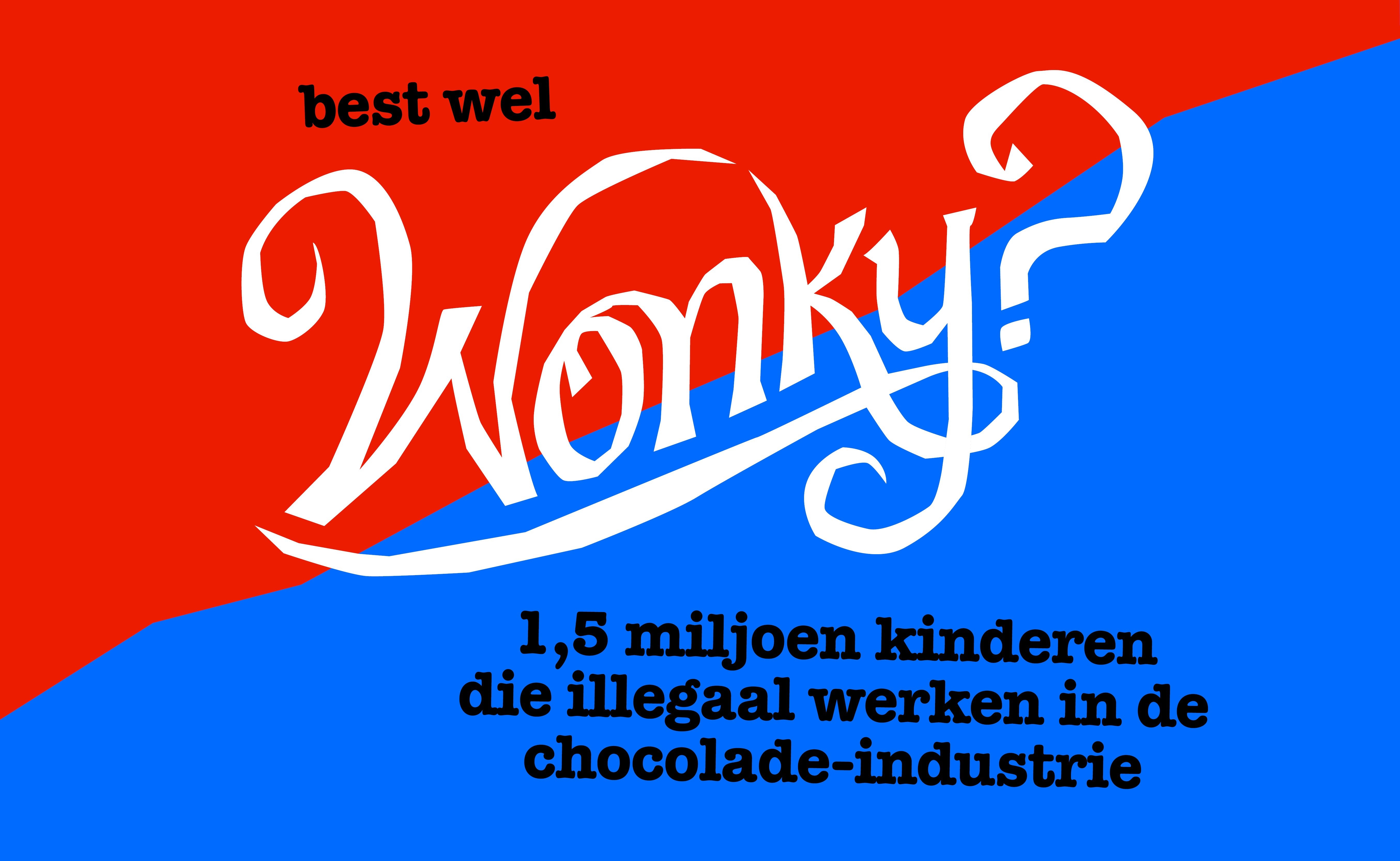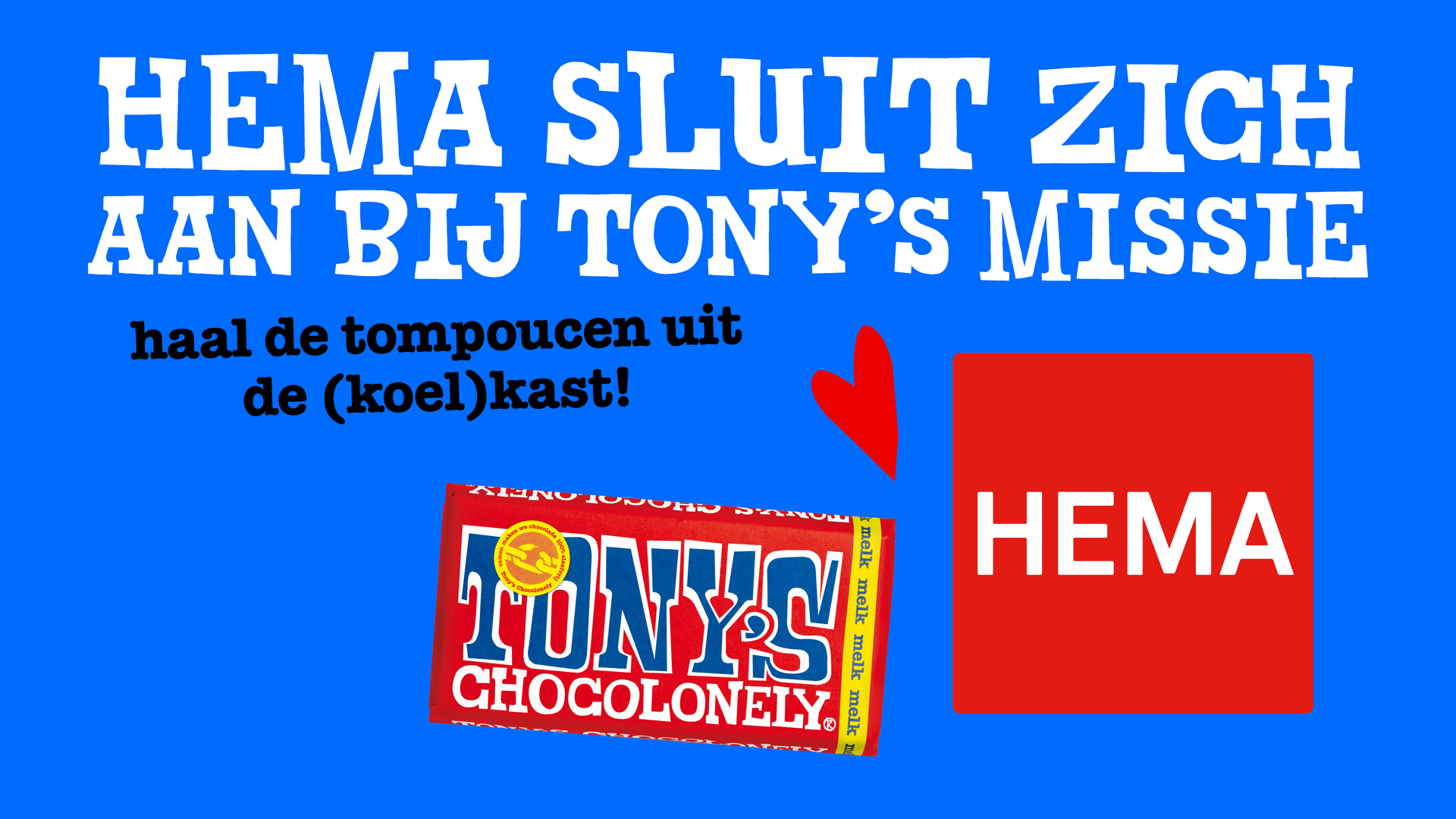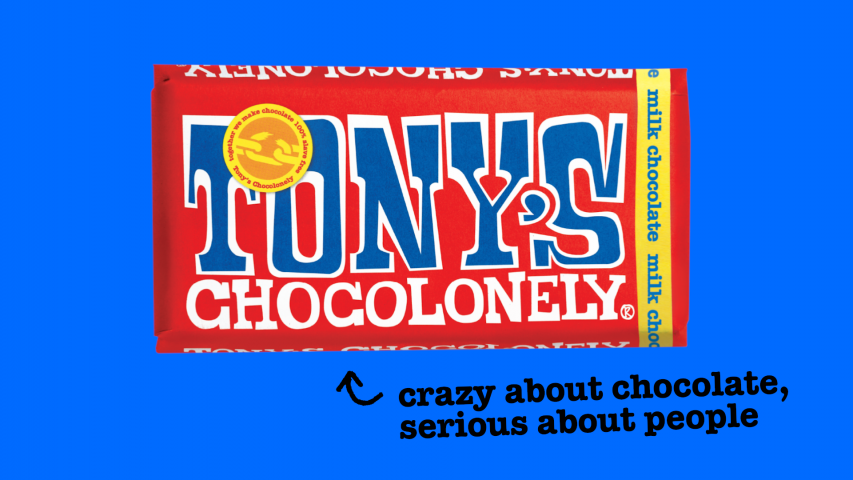Blog: Raging Reporter's Journey #2
Raging reporter Sietske blogs about her adventures in Ivory Coast.

Sietske won the mad reporters' trip in June 2016 with a joint campaign by Jumbo Supermarkets, Max Havelaar, the National Postcode Lottery and Tony's Chocolonely.
Text and photos: furious reporter Sietske Arnoldus.
Children in charge
“Tony's! Fair trade! Kapatchiva!'' Clapping hands, colorful outfits and excited voices. Wow. The welcome at the Kapatchiva farmers' cooperative feels like a warm bath. In a short time I have shaken more hands than my last five birthdays combined. There are cell phones and cameras everywhere. Just like us, the Ivorians want to record everything – and rightly so!
The national anthem sounds solemnly from the speakers and the national flag goes up in the air. As exuberant as the atmosphere was upon arrival, everyone is now so quiet. A few hundred people just watching and listening, you better believe that makes an impression. Ceremonies are always special, but today we are in for a treat. Being as large and organized as at Kapatchiva is also new for Femke and Wiebe from Tony's.
After the national anthem the joy breaks out again. Men and women dance in the sand to the stirring music of drums and xylophones. There is also plenty to celebrate. Scribble here, scribble there: Chain director Arjen ('Boekie') and representatives of the farmers' cooperative sign an agreement to extend the collaboration for five years. I swing around them with my camera. The farmers also receive the Fairtrade and Tony's Chocolonely premium from the past year.
Premium. Sounds businesslike, but it makes a world of difference for the farmers. They decide what to spend the money on together. Today we see this with our own eyes at the festive opening of a school. In a nearby village we peek inside a school that the Chocolonely Foundation previously built. English words are chalked on the blackboard. I have, you have, she has… an interesting job.
At the farmer's cooperative Ecojad we are witnessing the opening of a toilet building. Paid with Tony's premium, but Boekie is critical. There is no running water so it is a short-term investment. "I will be here again in three months and I would like to see things differently," he assures those involved.
Communities, farmer cooperatives, youth leaders, parents, Fairtrade and Tony's: a whole web of people working towards the same goal. It takes a village, after all, to put an end to child labor in the cocoa industry. Tony's Chocolonely was founded to remove that 'bitter aftertaste' from our chocolate. But do people in Ivory Coast see it as a problem? Not always, Mariama admits. And that is exactly where the project starts. Providing information and engaging in conversation. “If my child works on the plantation, I will have more income,” Mariama often hears from parents. “Then we explain that children can work after school or during the weekend. During the day they belong in class." Work on the plantation is not always wrong, as long as it is done safely and outside school hours. Farmers are also reminded of Fairtrade rules, such as the minimum age for working children. One warning is allowed, a second error means: goodbye certificate.
And the role of children themselves? Mariama's eyes light up. “In our culture it is not common for children to speak out against adults. But that's exactly what we teach them. There was a woman who always let her daughter walk to the river to fetch water. After a training session, the girl protested: "This is heavier than my own weight, I am not going to carry this anymore!" Her mother listened. For Mariama, children have the most important voice in indicating what is needed. “Whether it concerns a game center, a playground at school or a hospital: we seriously look at the possibilities.” Without a school nearby, the risk of child labor is greatest. Many children then hang around and do dangerous and illegal work on plantations. Toilets and lunch at school are also needed. More striking: the absence of water in a village also increases the risk of child labor. A child who has to walk miles to fetch water does not have time to go to class. Farmers from the Ecojad cooperative solved this with a water pump in their village, financed with the cocoa premium.
Getting children to stand up for their rights is the hobbyhorse of Mariama and the project. ''Sometimes teachers let their students clean the school or do other chores. Of course, that is not the intention," she sighs. Mariama sounds optimistic about the future. As a gigantic cocoa supplier, Ivory Coast is under pressure to end child labor and more and more boys and girls are going to school. Laetitia and I also learn a lot from Tony's team on this trip. During the long car rides, Arjen talks endlessly about the country. Did you know that as a former French colony, Ivory Coast still pays reparations to France? That there is a ministry of cocoa? Oh and that…? No, we didn't know. (A special mention for your mother-in-law, Boekie 😊) Wiebe teaches us a lot on the plantations and beyond. Three meters is the best distance between a cocoa tree and a shade tree. A rubber plantation as a pension is good farming. And palm wine is quite drinkable straight from the tree. Wiebe turns out to be a true fact-finder and I soon rename it Wibipedia. Henk happily talks about 'his' Chocolonely Foundation, which pays school fees for thousands of children and sets up a fund against human trafficking. And Femke? She arranged the ins and outs of the reporters' trip and she also made sure we felt at home on site.
In a few days we see many positive things. The opening of a school, adults and children enjoying chocolate, strong cooperatives and a thorough approach to child labor. We also discuss the bigger picture with Jacques from Fairtrade. Half of all residents in Ivory Coast still live below the poverty line. 100 euros per month is the minimum wage, but to make ends meet with a family you need at least 300 euros. Paying a little more for a bar of chocolate is not that bad...
Time flies by in Ivory Coast and before we know it we are back on Dutch soil. At Schiphol I pop into the supermarket. There are two foreign girls standing in front of me. “Yeah, we really need this one,” the judge nudges her friend. She takes an orange bar of Tony's from the shelf. The girls walk to the cash register with the chocolate and a pack of stroopwafels. I can't suppress a smile: they just had to know. Everything comes back in a flashback. Champagne on the plane after a round of Tony's with the staff. Dances of joy with Ruth, Marie and the other children. The smell of cocoa beans, the festive ceremonies and dedicated farmers. Walking around the harbour, the basilica in Yamoussoukro and so on.
For me, Ivory Coast is a beautiful country full of promise. Equally, it is a country where much still needs to be done to completely eradicate child labor and alleviate poverty. As a Raging Reporter, I hope that the story behind the chocolate will be told. Seeing, hearing, smelling and tasting how Tony's chocolate is made and being able to share it was a treat!
maybe also interesting
-

mission
12 December 2023
Quite Wonky, all those abuses in chocolate
-

mission
08 November 2023
Jumbo will start sourcing its cocoa fair via Tony's
-

mission
25 September 2023
HEMA joins Tony's mission for 100% slave-free chocolate
-

mission
16 June 2023
Good news! We received 20M€ to accelerate our impact and soar closer to our mission.




